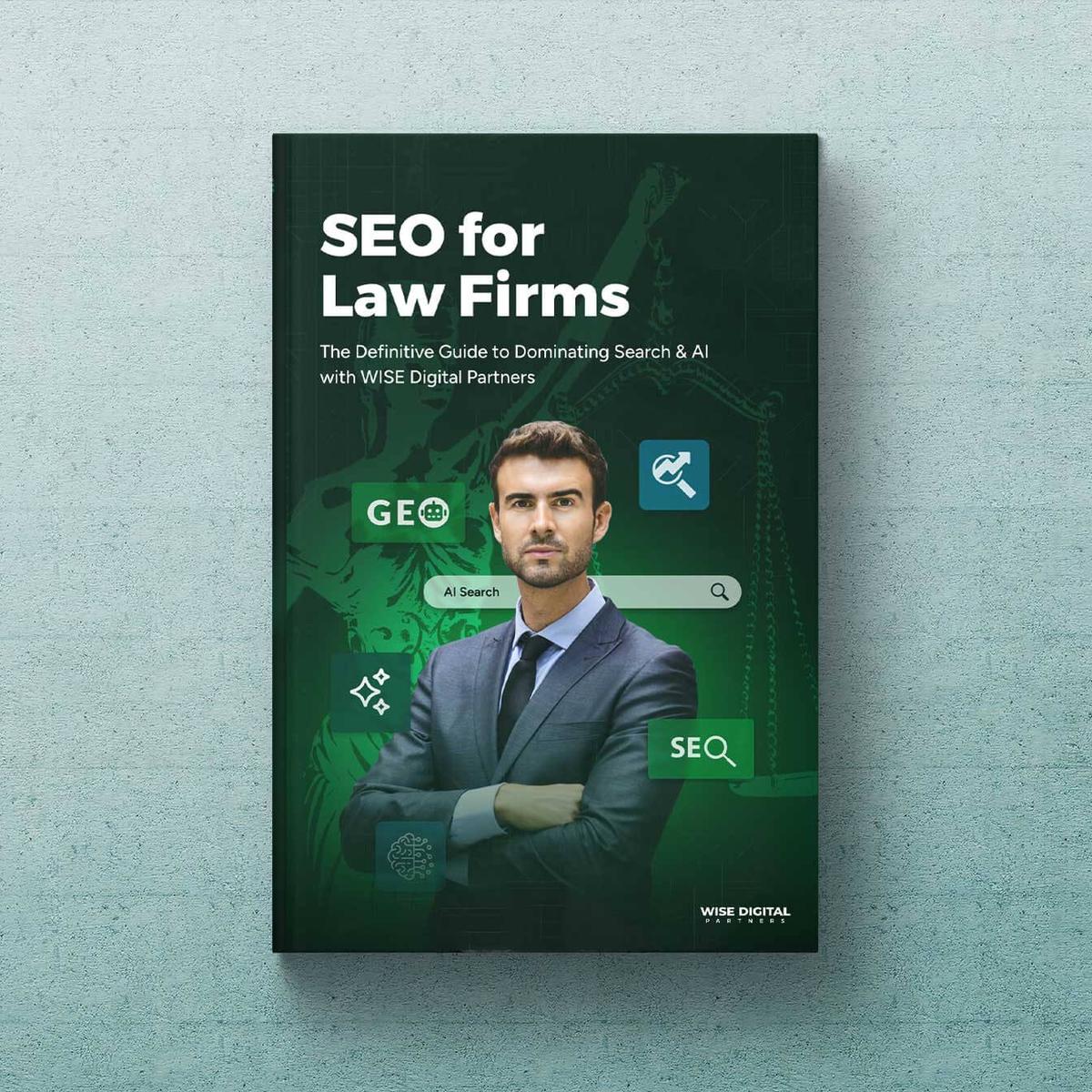It's Time to Get WISE.
A quick, honest call to assess your needs and point you in the right direction—no sales pitch. Best suited for:
- Established businesses with a defined marketing budget
- Businesses prepared to grow and scale
A deep dive with a top expert to uncover gaps and map a smarter path forward.
- Includes a $250 digital audit covering your website, SEO, local presence, and online performance—yours to keep.
- Get smart, actionable ideas you can apply to your business right away.

Enter the email you would like your guide sent to:

Enter the email you would like your guide sent to:

Enter the email you would like your guide sent to:
Apply Today
Please fill out the information below. Someone on our team will reach out in 3-5 business days to schedule a call if we see a good fit.
Book Patrick Dillon
Thanks for your interest in booking WISE CEO Patrick Dillon on your podcast! Please complete the form below, and a team member will contact you shortly.

Remove Negative Reviews.
AI Washing: The Latest Threat to Business Owners

by WISE Digital Partners
September 5, 2024
- 6 min read

As a business owner, you strive to keep up with trends and technologies and actively work to stay ahead of the curve. That means constantly exploring new innovative solutions and growth opportunities.
But new trends bring potential threats that can undermine your hard-earned reputation. Artificial intelligence is no exception.
AI promises to revolutionize industries through genuine solutions that can save time and money. But a more sinister trend has emerged alongside it: AI washing. This deceptive practice poses a threat to business owners by:
- Not delivering on a promised return on investment
- Causing customers to lose trust in companies
- Bringing about legal repercussions resulting from misleading claims
What's worse, many don't even know they're falling prey to products that use AI washing. Learn more about this new threat and the steps you can take to protect your business.
What Is AI Washing?
AI washing is when a company exaggerates or flat-out falsely claims its products or services are powered by AI.
Why would a company do this? It’s an attempt to leverage the buzz and excitement happening around artificial intelligence. They want to attract investors and customers looking for this new technology without having to actually invest in real AI capabilities.
The term "washing" is borrowed from similar practices like "greenwashing," where companies make misleading claims about their eco-friendly practices.
Why It's a Threat
The rise of AI washing poses multiple threats to businesses. Let's dive into just three of the repercussions this practice can have.
Investing in Products That Don't Deliver
In the quest to stay competitive, you're likely looking for new, innovative technologies. When you invest in AI-powered products or services, you do so with the expectation of a return on investment. But if you've unknowingly teamed up with a company that's AI washing, that "solution" will fail to meet your expectations, leaving you with unfilled goals and nothing to show for the money spent.
The gap between what's advertised and what's delivered can be financially crippling, especially for small business owners who don't have a lot of extra funds to invest in new technologies. The bottom line? AI washing can lead to missed opportunities and wasted resources.
Damaging Reputations
There are few things more important than the customer-business relationship. You've spent years building a reputation as a trustworthy company that prioritizes customer needs and solves market problems.
If you present an AI-driven solution that doesn't work as intended, your customers can become disillusioned. This perceived breach of trust can lead to a loss of repeat business, negative reviews, and a significant hit to your reputation that can take years to repair.
In a world where every market is inundated, maintaining customer confidence in your business should be a top priority.
Legal Ramifications
Let's say a company offers new AI-driven technology, and it's just the product you've been looking to add to your arsenal of services. You purchase the technology, implement it, and use the claims from the developer to advertise it.
But after a few weeks of attempting to use this so-called breakthrough technology, you discover the developer's claims are misleading or outright false. Even though you didn't create the technology or knowingly mislead customers, you could still be held liable in a court of law.
Fines, lawsuits, and other legal penalties, as well as the publicity fallout associated with such actions, can easily sink a business. In a growing era of regulatory scrutiny, making an exaggerated or false claim comes at great risk to your company.
Real-World Cautionary Tale
From 2019 to 2023, two investment advisers, Delphia Inc. and Global Predictions Inc., made claims in press releases and on their websites about their purported use of AI and machine learning.
They claimed to use artificial intelligence to predict which trends and even which companies were about to hit it big. Consumers could then use this information to invest in said companies before anyone else, capitalizing on lucrative opportunities. The overall stance of the investment advisers? They used collective data to enhance their AI, making it even smarter.
The Securities and Exchange Commission disagreed. Chair Gary Gensler stated that both companies "marketed to their clients and prospective clients that they were using AI in certain ways when, in fact, they were not."
After pursuing legal action, both firms agreed to settle the SEC charges against them and pay $400,000 in civil penalties.
A word of warning from Gurbir S. Grewal, Director of the SEC's Division of Enforcement:
"You need to ensure that your representations are not false or misleading."
How to Protect Your Business From AI Washing
Question Everything
Be wary of vague descriptions, overly ambitious promises, and a lack of explanations. If technology truly is powered by AI, there will be specific details that showcase how it functions and performs.
Work With Reputable Companies
Partner with companies that have proven track records of delivering AI solutions. Just like you, they've worked hard to achieve good reputations; reputations that will be on the line right alongside yours.
Look for case studies, customer testimonials, and even third-party validations that prove the effectiveness of their AI-powered products or services.
Choose Substance Over Style
Don't let trendy terms like AI and machine learning sway you without understanding the potential value they add to your business. Do your due diligence to ensure a product enhances your offerings in meaningful ways. If all you're getting is marketing hype, it's best to look for other solutions.
Beware of the Opposite of AI Washing
While AI washing is a more well-known issue, the opposite scenario can be just as big a threat to business owners. Some may claim that they don’t use AI at all when they secretly rely on such technology.
This is yet another deceptive practice that can mislead customers, creating a false sense of trust. Once the truth comes out–and the truth always does–the company in question will likely suffer a big hit to its reputation and even bottom line. Once you’ve fallen out of your customer’s good graces, it’s difficult to rebuild that trust.
The best policy? Honesty and transparency. If you’re using artificial intelligence, be upfront about it. By letting your customers know exactly how you’re leveraging this technology, you build trust and loyalty while helping your consumers fully understand the tools and technologies they’re utilizing.
How We Use AI
How does WISE Digital Partners leverage the power of artificial intelligence? In more ways than one because when used correctly, AI offers several benefits.
Live Chat
AI partially powers our live chat website service. A consumer's conversation begins with AI but switches to a human once the consumer starts asking material questions. This hybrid AI-human approach offers the best of both worlds; potential customers can quickly get the information they're looking for, and businesses become less likely to miss a lead.
Content Marketing
While we do not produce AI content, we do leverage the capabilities of artificial intelligence when looking for sources of inspiration. When used in conjunction with the other tools at our disposal, it can help us more fully reach our creative and strategic potential.
Search Engine Optimization
Conversely, AI can also help those with more analytical minds, like our SEO experts, tap into their creativity. Artificial intelligence can be a powerful ideation tool, taking specific insights and crafting outlines our team can refine.
The one thing we know for sure when it comes to AI? It should never be left to its own devices. It needs direct prompts, specific edits, thorough refinement, and careful optimization, all which require real brain power–brainpower that our experts have.
Partner With WISE to Stay Ahead of Your Competition
AI washing won't help you become an industry leader. But WISE can. Learn how by scheduling a complimentary consultation today.
Share
Subscribe to WISE Insights
Stay ahead of the digital marketing curve and never miss a lucrative trend or insightful tidbit – subscribe to our WISE blog!
Keep Reading
Build. Grow. Soar.
Get WISE about digital marketing with advanced services, industry experts, and cutting-edge tools designed for long-term, sustainable growth.




